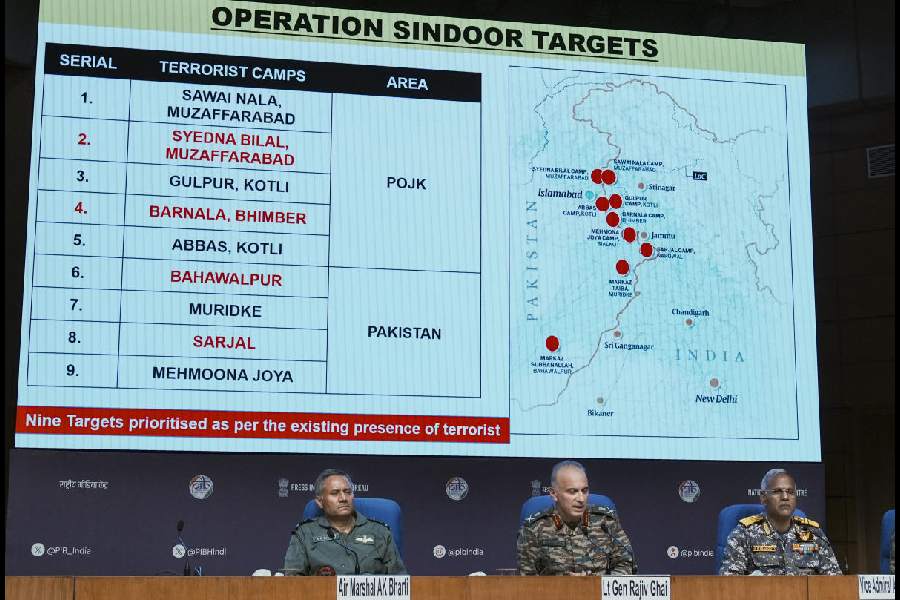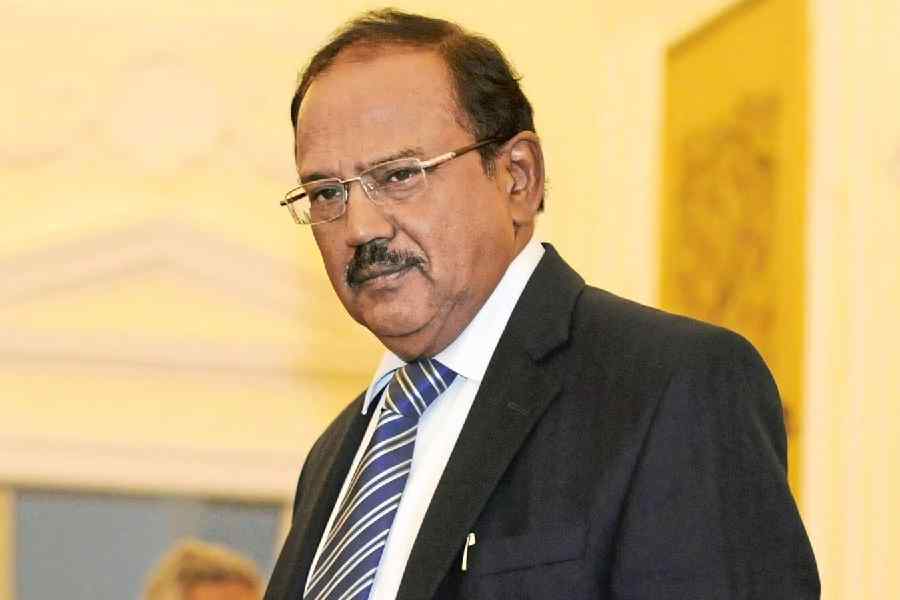National security adviser Ajit Doval on Friday said India carried out precision strikes on nine terror targets across Pakistan during Operation Sindoor, hitting out at the global media for its coverage of the military mission and for making unsubstantiated claims of damage inflicted by the neighbouring country.
“A lot of things were said in the foreign press,” Doval said, asking if the media abroad had any evidence to back their claims.
Doval, however, did not make any mention of the losses suffered by the Indian Air Force on May 7, the first day of Operation Sindoor.
“The foreign press said that Pakistan did that and this.... You tell me one photograph, one imagery from satellite, which shows any damage to any Indian structure, even a glass pane having been broken,” he said.

The army gives details on Operation Sindoor at a media conference in New Delhi on May 11. PTI
“...They (international media) wrote these things and put out things.... The images only showed 13 air bases in Pakistan before and after May 10, whether it was in Sargodha, Rahim Yar Khan, Chaklala.... I am only telling you what the foreign media put out on the basis of images.... We are capable of doing that (damage to Pakistani air bases)...,”
Doval added.
Speaking at the 62nd convocation ceremony of IIT Madras, Doval said India decided to target nine terrorist infrastructures in Pakistan. “We hit nowhere except that. It was precise to the point where we knew who was where. The entire operation took 23 minutes”.
Highlighting the importance of the link between technology and warfare, Doval said he was proud that much of Operation Sindoor was driven by indigenous devices.
“We are proud of it… that some of our best systems worked, whether it was BrahMos (missiles), the integrated air control and command system, or battlefield surveillance. We decided on nine terrorist targets, not in the border areas but crisscrossing Pakistan, and we missed none,” Doval said.
Doval said the country could not afford to lose the technology battle or fall behind others.
He acknowledged the role of IIT Madras and the private sector in developing 5G connectivity in two-and-a-half years whereas China had taken over 12 years and spent $300 billion.
Last week, India’s deputy army chief, Lieutenant General Rahul R. Singh, had said China had helped Pakistan with “live inputs” on Indian military deployment and attack trajectories during Operation Sindoor, adding it was “like a live lab” for Beijing that allowed it “to test its weapons against other available weapons”.
He had also identified several key concerns and “lessons” that emerged from the May 7-10 military conflict, such as China using its satellites to monitor Indian military deployment and the need for better air defence systems.
Earlier, India’s defence attaché in Indonesia, Captain Shiv Kumar, had said India lost “some” combat jets on May 7 because of the “constraint given by the political leadership” against striking Pakistani military establishments and air defences.
Chief of Defence Staff Anil Chauhan had also said India lost fighter jets on Operation Sindoor’s opening day before swiftly rectifying its tactical mistakes and launching further attacks to “hit deep inside Pakistan”.










